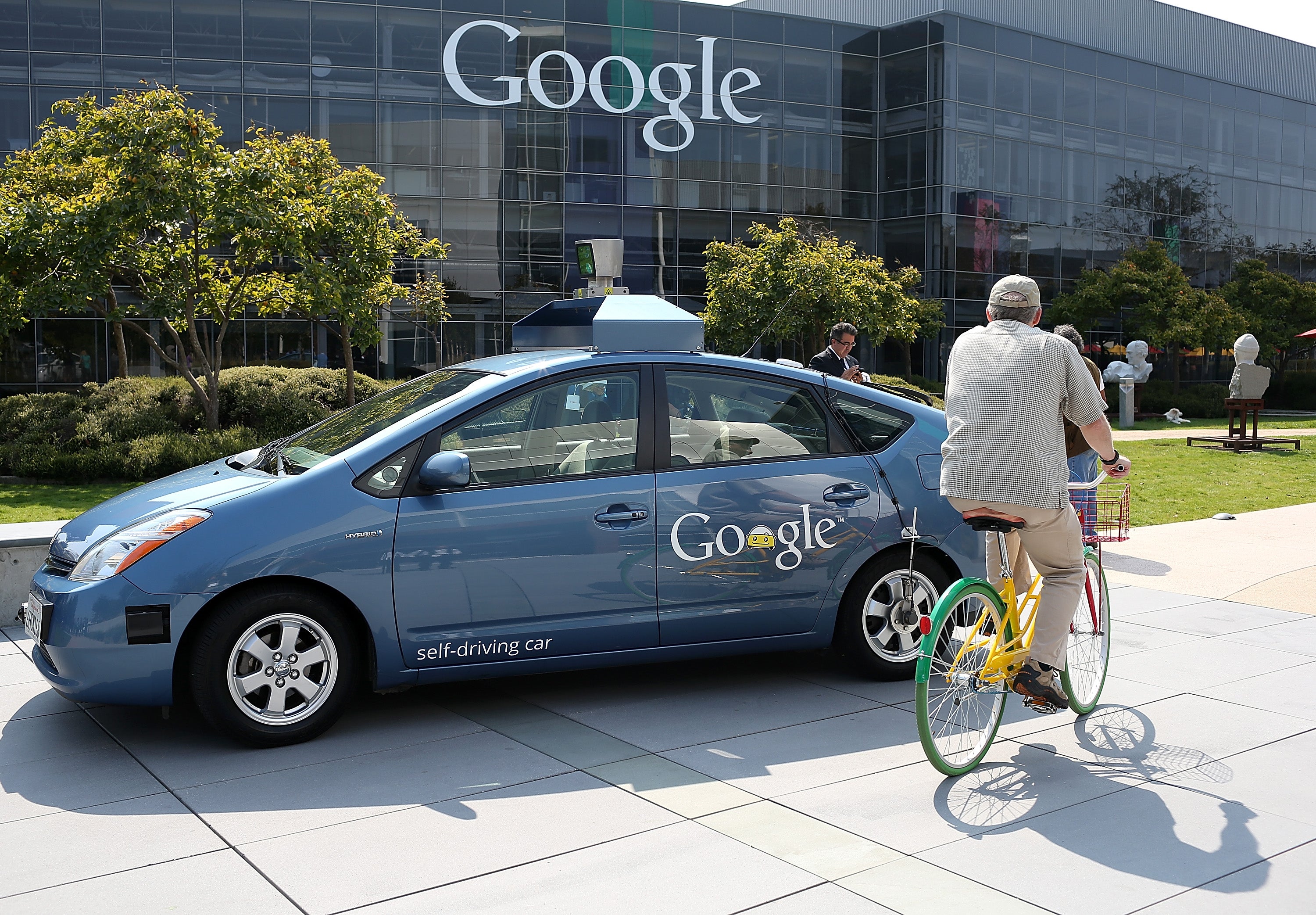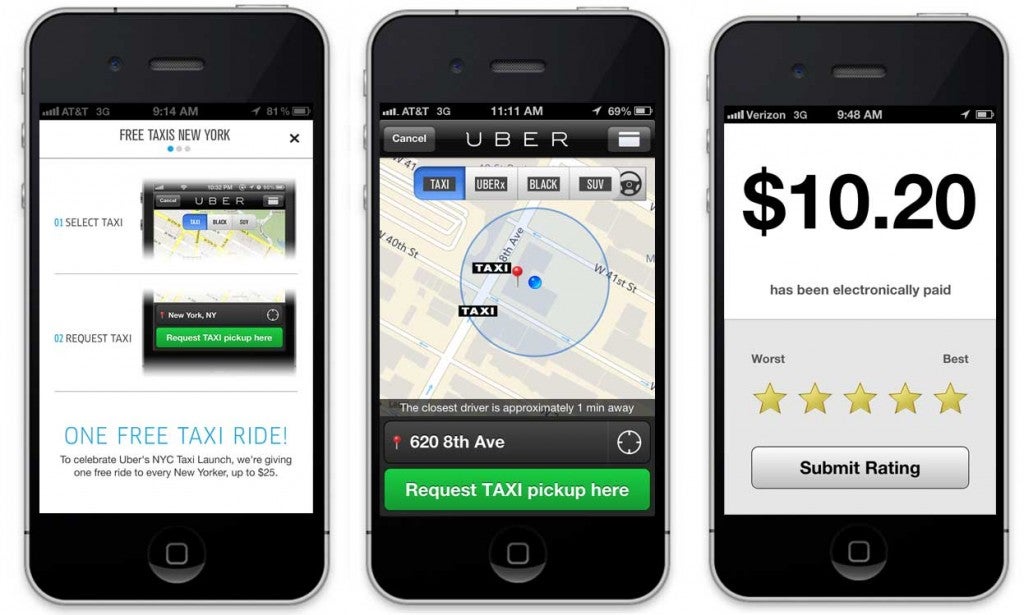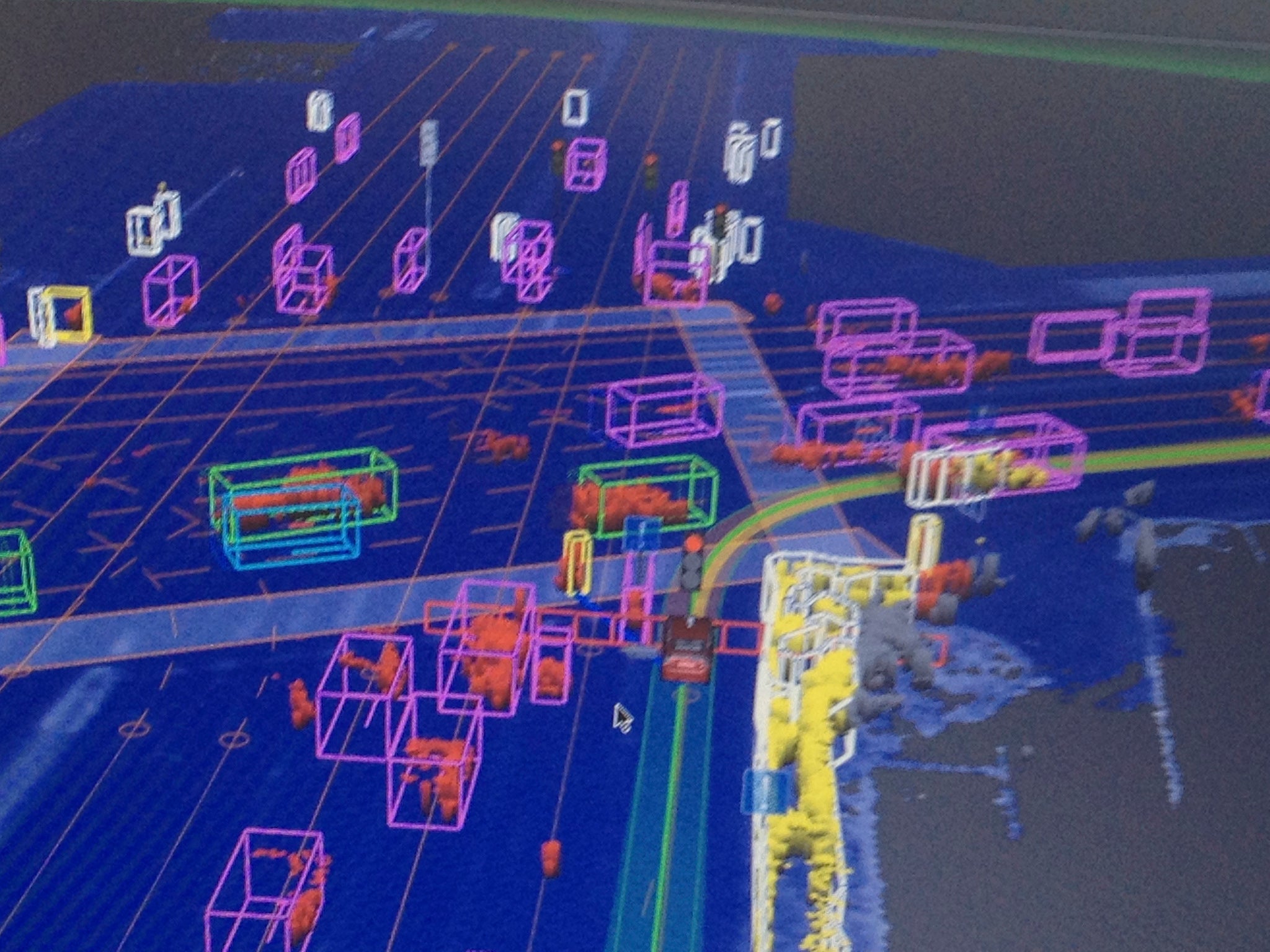Google considering turning self-driving cars into a 'robo-taxi' service
Reports following $258m investment in taxi-hailing app Uber by the search giant

Although Google’s self-driving cars have been a technological success the search-giant has had difficulty finding a method of getting the vehicles into mainstream use. However, new reports now suggest that the company is considering using their vehicles to create an autonomous ‘robo-taxi’ service.
The self-driving vehicles would pick-up and drop-off passengers without human intervention, and would presumably be paired with a mobile application.
Google recently led an investment of $258 million in Uber, a three-year old taxi-hailing app now valued at $3.5bn. Uber started by offering customers the chance to order high-end vehicles from their mobiles within minutes, but the service has been so popular that a string of competitors have emerged (including Lyft, Hailo and Sidecar) whilst taxi unions and local governments have sought to obstruct the service’s growth.

It’s not clear whether Google would operate a fleet of cars themselves or hire out their expertise to other companies. Tech reporter Amir Efrati has said that Google had previously considered offering the service as a trial to specific cities as they have with Google Fibre. This would hopefully stimulate interest in the project and pressure other industry players to get involved.
Rival car-makers including Mercedes-Benz, Nissan and Toyota have all developed prototype self-driving cars and sources within the industry believe that these incumbent players are unwilling to welcome Google into the fold.
However, last Thursday German newspaper Frankfurter Allgemeine Zeitung reported that Google was nearing a deal with Continental, a major automotive supplier based in Germany, suggesting that the Californian tech company are moving towards manufacturing their own vehicles.
Currently Google’s self-driving cars use the Toyota Prius, a full-hybrid hatchback that typically costs around $25,000 in the US, and retrofit these with an array of sensors, cameras and computers. Although no official prices for the finished vehicles have been released, it’s expected that the necessary technology costs upwards of $100,000.
It would be an incredible risk for Google to cough up the funds necessary to start manufacturing vehicles, and although the self-driving cars are operated from within Google X (an R&D lab that houses all of the company’s ‘moonshots’ or high-risk projects) it still seems more likely that the company will continue to explore alternative avenues.

As well as finding a business model that works Google also face an uphill battle with regulation and local laws. The cars have been cleared to drive in four states in the US, and UK legislators have also given permission for tests of autonomous vehicles.
Google’s cars have so far only been involved in two accidents – one involved the car being rear-ended after stopping at a red light and the other occurred after a human driver took control of the vehicle.
Join our commenting forum
Join thought-provoking conversations, follow other Independent readers and see their replies
Comments
Bookmark popover
Removed from bookmarks